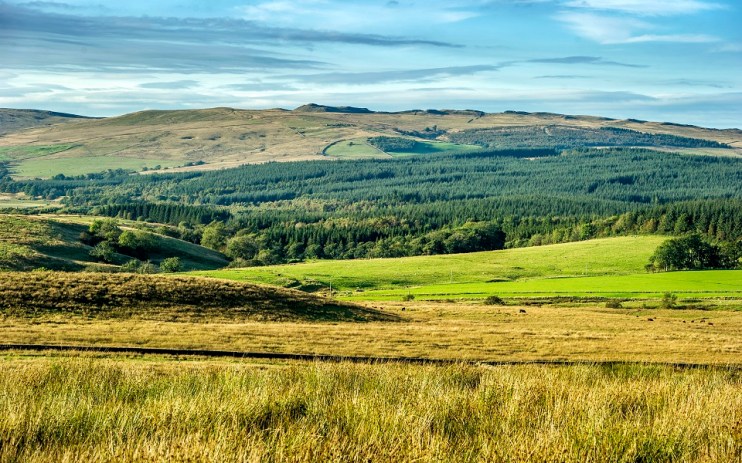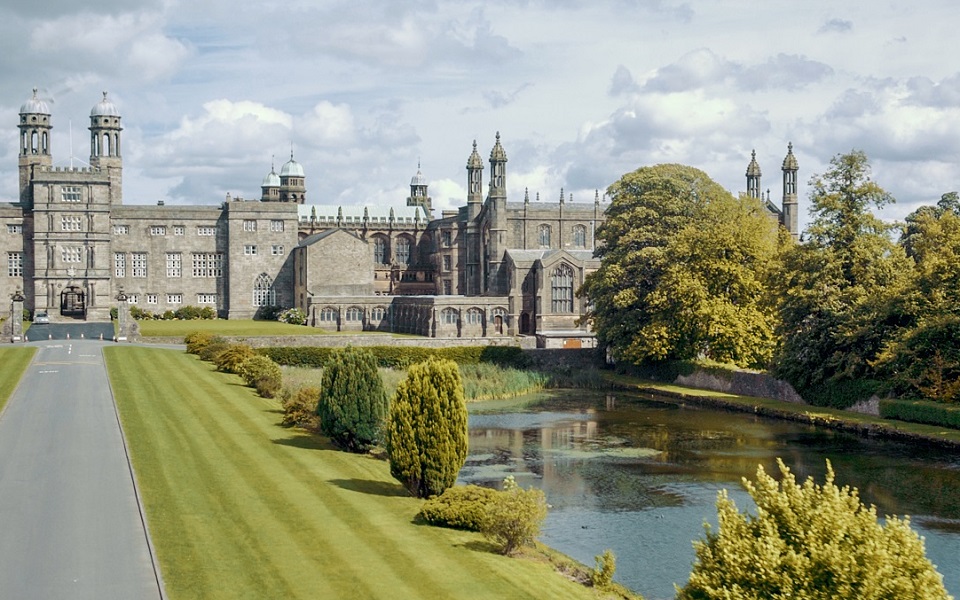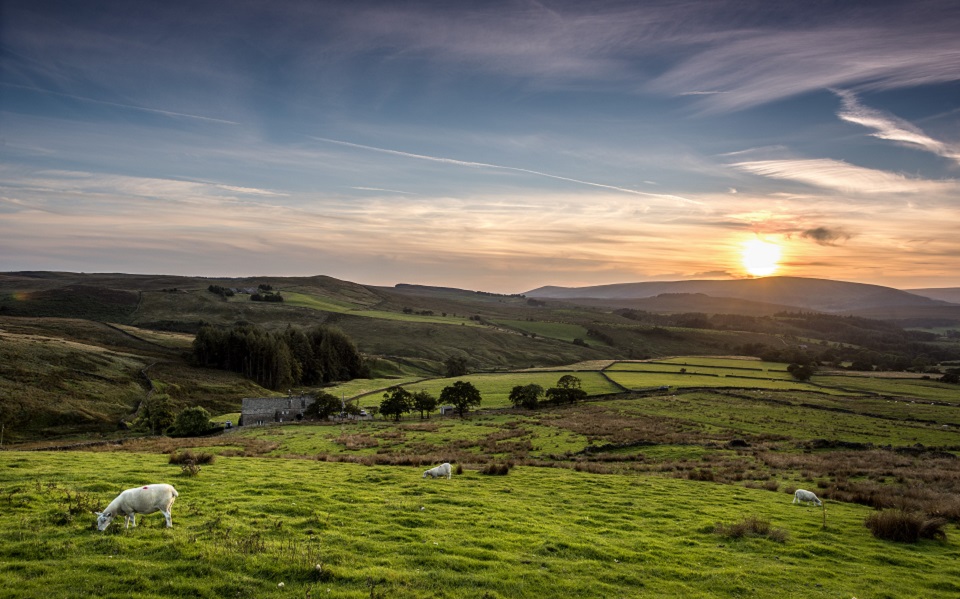A Lord of the Rings pilgrimage to The Ribble Valley

THE WEEKEND: I’m a lifelong fan of the great JRR Tolkien, and so to mark the release of the new Lord of the Rings: Rings of Power series dropping on Amazon, I’m visiting the village of Hurst in Lancashire’s rural Ribble Valley, which has a circular 9 km trail in honour of the Lord of the Rings’ author.
At one point I pass a piece of flint upon which a fan has etched the writer’s famous quote: “Not all those who wander are lost.”
The scenic trail starts by the Hurst War Memorial, crosses farms and fields before arriving at the gates of Stonyhurst College.

I pop in for a look at the attractive St. Peter’s Church and 19th century observatory, still in use, and imagine what it must have been like over one hundred years ago when the great author may have been inspired here as he wandered these lush green grounds.
Continuing, I reached the gurgling River Hodder and followed alongside it to the old packing horse bridge, used by Cromwell during the Civil War. Backtracking slightly and turning up the road, I crossed the long field which dips down and eventually meets with and wends its way along the River Ribble. At one point I pass a piece of flint upon which a fan has etched the writer’s famous quote: “Not all those who wander are lost.” Did he sit in this exact place and think this exact thought? I can’t be sure, but it’s incredible to be on the same turf where the literary great would have spent some of his downtime and the environment that even made it into his work: The countryside here is referenced in the Shire of The Hobbit.
The trail finishes at the parking lot of the Shireburn Arms, known for its pub’s gastro menu. You’ll be hungry by this point: the walk takes about 4 hours, going at a leisurely pace but bear in mind the starting point can be tricky to find: I asked a local who all seem lovely and knowledgeable about their Tolkien history.
The Buckleberry Ferry from The Shire of the Hobbit was based on the now dismantled Hacking Ferry which crossed near the confluence of the River Ribble and River Calder. I spied one of the original ferry boats restored and on exhibit in the Clitheroe Museum.

WHERE TO STAY: The mediaeval village of Wiswell within The Ribble Valley. The Freemason’s Arms was once used by members of the Freemasons organisation but has been converted into exceptional boutique accommodation. I also thoroughly enjoyed its award winning restaurant on the premises. Each menu item had true culinary flair; the Lamb and Rosemary Brioche was exceptional. Four rooms are named after countryside animals. Mr Fox, Mr Hare, Partridge, and Grouse are truly unmatched for country elegance. I stayed at Mr. Hare, one of the two rooms with mezzanines, each with freestanding roll-top tubs. Each has ensuite bathrooms with enormous showers, underfloor heating, a Nespresso coffee machine, bottled water, a comfortable super king size bed and 50 inch smart plasma TV plus wifi.
THE FOOD: The Freemason’s Arms chef Steven Smith has created a revolutionary and truly exceptional culinary space. I sat at the Kitchen Table where I overlooked the food preparation area as I enjoyed my meal. During the autumn dishes will feature venison, wild rabbit and wild mushrooms plus hearty soups. The attention to detail with every entrée and side dish is exceptional. Starting the day with a wonderful full English breakfast at the Freemason’s is a must. There is also a tiny pub, the Fox’s Den, nestled right next to the restaurant so I didn’t go thirsty.

ASK ABOUT: The thriving market town of Clitheroe, chartered by Henry de Lacy in 1147 and the second oldest township in Lancashire. Famous for its castle which houses the Clitheroe Museum, the best part is Bowland Food Hall which offers fabulous cheeses, meats and even specialist mustard from the valley.
VISIT THE RIBBLE VALLEY: Nightly rates at The Freemasons at Wixwell, 8 Vicarage Fold, Wiswell, Clitheroe, Lancashire BB7 9DF are £280-£330 per night; freemasons@wixwell.co.uk or 01254 822218